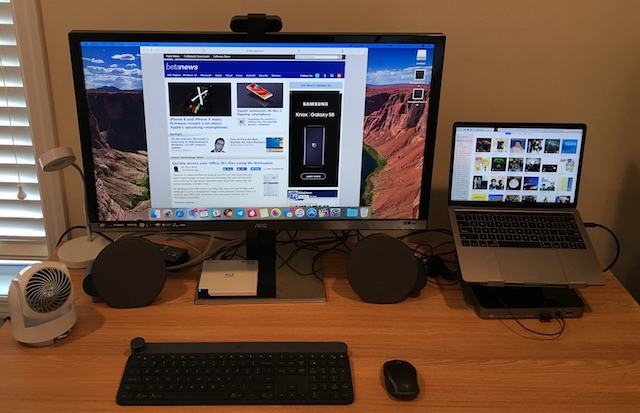At in Austin, Texas, CEO Solomon Hydes said, Docker 'is a bunch of projects not a monolith.' One of the newest of these projects is. This is a toolkit for building secure, portable, and lean operating systems for containers. With LinuxKit, Docker has both a toolkit for creating lightweight Linux containers and a tiny Linux container for operating systems, such as macOS and Windows, which don't have built-in Linux. Specifically, it's a toolkit to assemble custom Linux subsystems with the initial intention to create a more native experience for Windows and Mac macOS desktops and cloud platforms. This program was developed with leading companies such as silicon partner ARMl infrastructure providers like HPE, as well as cloud companies including Microsoft and IBM. It is now an open source project that will be managed.
Our Review Of Docker For Mac Free
Read this. Docker claimed LinuxKit allows users to 'create very secure Linux subsystems because it is designed around containers. All of the processes, including system daemons, run in containers, enabling users to assemble a Linux subsystem with only the needed services. As a result, systems created with LinuxKit have a smaller attack surface than general purpose systems.' That's all true, but it's true of any containerized operating system. In a blog post, Justin Cormack, a Docker engineer, added: ' that only include exactly the components the runtime platform requires.
All system services are containers that can be replaced, and everything that is not required can be removed. All components can be substituted with ones that match specific needs. It is a kit, very much in the Docker philosophy of batteries included but swappable.'
LinuxKit enables this by bundling Linux into the Docker platform. That way users who want Linux container support on platforms without native Linux such as macOS and Windows can run on these operating systems.
The base LinuxKit Linux distribution is tiny. At its smallest, LinuxKit Linux takes up only 35MB with an extremely fast boot time to match. As you'd expect, 'All system services are containers, which means that everything can be removed or replaced.' It's highly portable and can work on desktops, servers, IoT, mainframes, bare metal, and virtualized systems. If this sound familiar, well it should. Is, and will remain, Docker's native Linux for containers. Alpine has many of the same features.
The key difference is that LinuxKit is meant to be even more flexible and easier to customize. In a tweet, Docker's security director, made it explicit that '. A stronger Alpine is a stronger LinuxKit. We'll continue to invest in Alpine.' McCauley also said ' Is there a market for LinuxKit?

Good question. Matthew Garrett, a Google security engineer and well-known open-source developer, tweeted that while he thinks ',' he also believes 'Docker is going to find the same thing everyone else does -. And, 'The Windows use-case is a little confusing to me.'
I also notice that while you wouldn't want to run Linux servers on, even with, this Windows 10 feature weakens LinuxKit's case for the Windows desktop. Want to see if it will work in your use cases?. Related Stories:. How Docker brought containers mainstream.
By registering you become a member of the CBS Interactive family of sites and you have read and agree to the,. You agree to receive updates, alerts and promotions from CBS and that CBS may share information about you with our marketing partners so that they may contact you by email or otherwise about their products or services. You will also receive a complimentary subscription to the ZDNet's Tech Update Today and ZDNet Announcement newsletters. You may unsubscribe from these newsletters at any time. ACCEPT & CLOSE.